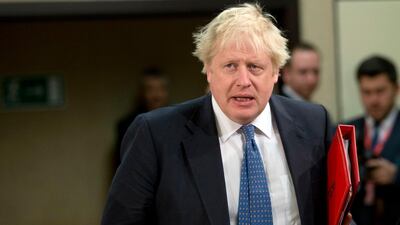Britain’s foreign secretary Boris Johnson will tell Sergei Lavrov that Russia must stop destabilising activities which threaten the national security of the UK and its allies during a visit to Moscow on Friday.
Mr Johnson will have face to face talks with his Russian counterpart to discuss cooperation on join international challenges, which include the preservation of the Iran nuclear deal and the North Korea threat.
However, the foreign secretary said that the UK’s relationship with Russia cannot be “business as usual” while Moscow continues to meddle in European countries affairs.
“The UK and Russia are permanent members of the UN Security Council, and its right that we continue to talk to each other,” Mr Johnson said. “Our relations with Russia cannot be ‘business as usual’ whilst Russia continues to attempt to destabilise European states, including Ukraine.
_______________
Read more:
Facebook and Twitter to cooperate with investigation into Russian Brexit meddling
Theresa May to identify Russia as a ‘hostile state’ at EU summit
_______________
“However, it is vital for international security that we do talk to each other – as the consequences of miscommunication or misunderstanding are grave. My visit to Russia comes at a critical time as we need to work together to solve the world’s most pressing global challenges.”
Mr Johnson stressed that the UK must defend its interests and those of its allies in a climate where hostilities between Russia and the West are at the highest they have been since the Cold War.
“We have a relationship with Russia that spans over 450 years. Our similarities and historical links far outweigh our current political disagreements," he said.
“The Kremlin has positioned Russia in direct opposition to the West, but it doesn’t have to be that way.”
Last month, Britain's Prime Minister Theresa May accused Moscow of "planting fake stories" to "sow discord in the West".
She said Russia had meddled in elections and carried out cyber-attacks on governments and parliaments across Europe.
Moscow has always denied growing accusations of meddling made by politicians in the West.

